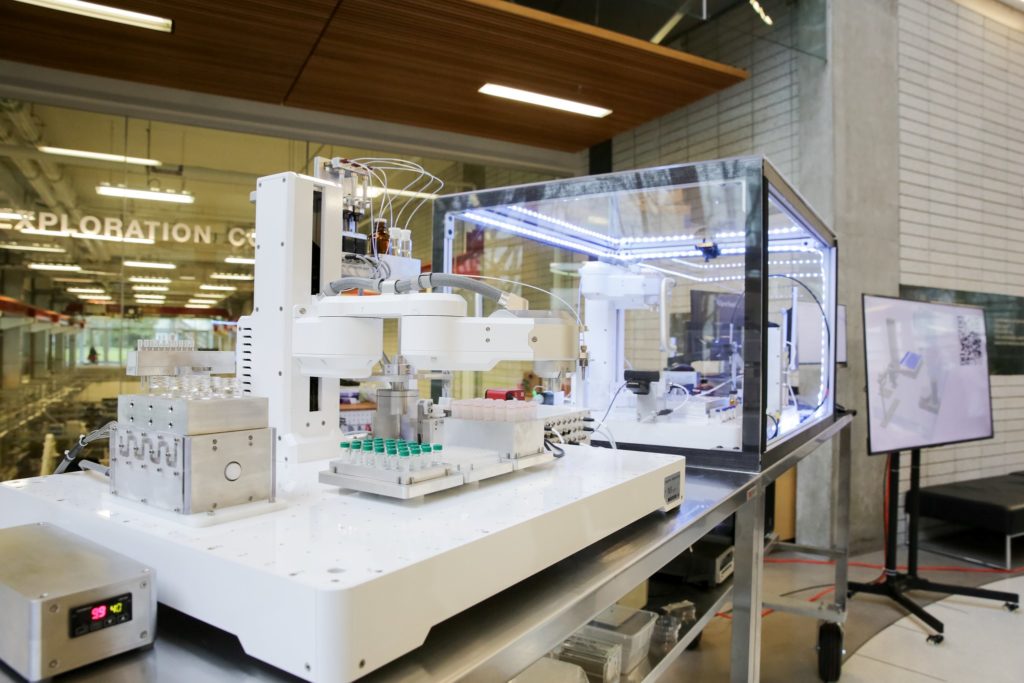
Research2Reality recently profiled the work of Dr. Curtis Berlinguette, professor of chemistry at UBC’s Stewart Blusson Quantum Matter Institute. Dr. Berlinguette is working on the world’s first self-driving robot to help make new materials for clean technologies.
Dr. Berlinguette co-leads Project Ada, short for Autonomous Discovery Accelerator for Materials Innovation, a group with the goal to fast-track development so that experiments that used to take decades can be done in weeks. His main target is to optimize thin films.
“Thin film materials are important to the clean tech industry because you require thin films in solar cells, you require them in batteries, you need them in more efficient windows,” explains Dr. Berlinguette.
But optimizing new thin films and getting them onto the market can take over 20 years, says Dr. Berlinguette. Without them, clean energy isn’t keeping pace with demand.
Automating their development helps scientists make smarter and faster decisions, and hopefully this can accelerate these long timelines.
To accomplish these goals, Dr. Berlinguette uses a combination of artificial intelligence and automation to make routine decisions and work around the clock to crank out results faster.
“Experiments that would have taken us a year to do just a short time ago, we can now do in a period of hours or maybe a couple of days at most,” adds Dr. Berlinguette. “So, we’re really accelerating the development process with these materials.”
Clean technology is urgently needed now. In this race against the clock, automation opens possibilities for faster adoption of more efficient and sustainable options, clearing a roadblock to a greener future.
Project Ada is an example of how UBC is working to improve the ecosystem that supports the translation of research into action, as supported in Strategy 9: Knowledge Exchange.